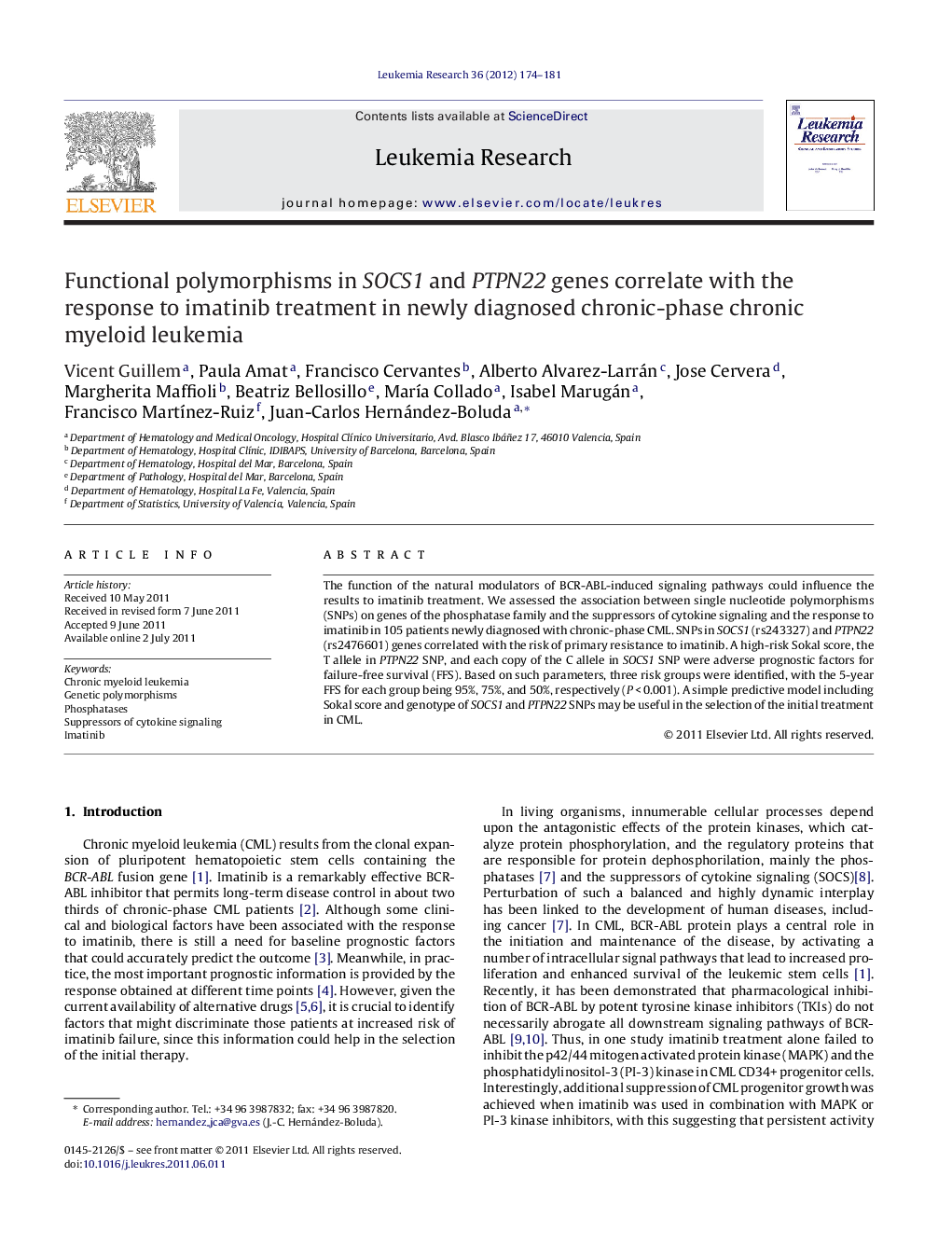| Article ID | Journal | Published Year | Pages | File Type |
|---|---|---|---|---|
| 10909213 | Leukemia Research | 2012 | 8 Pages |
Abstract
The function of the natural modulators of BCR-ABL-induced signaling pathways could influence the results to imatinib treatment. We assessed the association between single nucleotide polymorphisms (SNPs) on genes of the phosphatase family and the suppressors of cytokine signaling and the response to imatinib in 105 patients newly diagnosed with chronic-phase CML. SNPs in SOCS1 (rs243327) and PTPN22 (rs2476601) genes correlated with the risk of primary resistance to imatinib. A high-risk Sokal score, the T allele in PTPN22 SNP, and each copy of the C allele in SOCS1 SNP were adverse prognostic factors for failure-free survival (FFS). Based on such parameters, three risk groups were identified, with the 5-year FFS for each group being 95%, 75%, and 50%, respectively (PÂ <Â 0.001). A simple predictive model including Sokal score and genotype of SOCS1 and PTPN22 SNPs may be useful in the selection of the initial treatment in CML.
Keywords
Related Topics
Life Sciences
Biochemistry, Genetics and Molecular Biology
Cancer Research
Authors
Vicent Guillem, Paula Amat, Francisco Cervantes, Alberto Alvarez-Larrán, Jose Cervera, Margherita Maffioli, Beatriz Bellosillo, MarÃa Collado, Isabel Marugán, Francisco MartÃnez-Ruiz, Juan-Carlos Hernández-Boluda,
